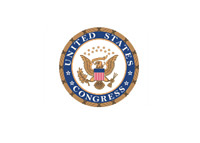Should Companies Receiving Assistance From TARP Still Be Paying Out Bonuses?
 Should multi-billion dollar bonuses still be paid out by a company that is receiving federal bailout money? That's the question that many are asking right now as companies such as Goldman Sachs, Merrill Lynch and Morgan Stanley all plan on paying out many billions of dollars in bonuses this year. The three firms mentioned (Goldman, Merrill and Morgan) have earmarked $20 billion dollars that will be paid out in bonuses in 2008.
Should multi-billion dollar bonuses still be paid out by a company that is receiving federal bailout money? That's the question that many are asking right now as companies such as Goldman Sachs, Merrill Lynch and Morgan Stanley all plan on paying out many billions of dollars in bonuses this year. The three firms mentioned (Goldman, Merrill and Morgan) have earmarked $20 billion dollars that will be paid out in bonuses in 2008.The potential payouts have drawn plenty of negative attention for the firms over the past month. The two presidential candidates, John McCain and Barack Obama, have both publicly commented on the situation, while Henry Waxman and New York Attorney General Andrew Cuomo have opened an investigation into the bank's compensation structures.
Of the nine banks that are going to be receiving federal assistance from the Troubled Asset Relief Program (TARP), only one has a higher share price compared to the beginning of the year (Wells Fargo). The rest of the companies have all been taken apart in 2008, with Morgan Stanley trading down about 70% from where it started the year. Many people point to the eroding share values in these companies and wonder how they can justify paying out billion dollar bonuses.
People will also point out that many of the problems that are currently burdening the economy and the Federal government (subprime mortgages, CDOs, credit default swaps) originated with these companies, and while they can begrudgingly accept bailing out these firms, they can't sit back and watch as these very same firms lavish billions of dollars in bonuses on their employees.
Those who were expecting these firms to cancel their bonuses for 2008 will likely be disappointed. The firms have given no indication that they intend to do this, and I really can't see it happening. A recent survey of Wall Street employees showed that 1/3rd expect a "higher" bonus this year compared to last year, while at least 2/3rds of those surveyed expect some kind of a bonus.
Many Wall Street firms heavily rely on lucrative bonuses to attract talent. Those who are defending the banks in this matter charge that reduced or eliminated bonuses for 2008 would result in these firms losing a great deal of their best talent.
Just to play devil's advocate for a second - let's say that you work at Goldman Sachs. Goldman Sachs has many different divisions and departments that all contribute to the firm's bottom line.
Let's say that you are the head of a department that generated the firm a total of three billion dollars in 2008. You agreed to a deal with the firm that would pay you a minimal salary and generous bonuses, based on your performance.
Your department has done extremely well in 2008, and you feel as though you are absolutely entitled to the bonus payment outlined in your contract. Goldman Sachs itself has not done well in 2008, but your department has hit it out of the park. You worked 80 hour weeks and feel that you and your department deserve their bonuses.
In this case, what should Goldman Sachs do? Not pay out a bonus to this department and risk you moving down the street to a firm not receiving bailout money?
While I definitely agree that this situation does in fact look horrible for the banks, there are definitely some complications that would arise from cancelling bonuses across the board for an entire calendar year. For this reason, I really doubt that these firms will cancel or reduce bonuses for 2008.
Having said that, the executives of most of these firms should absolutely not be taking bonuses for 2008. We'll see what happens.
Filed under: Stock Market Scandals



